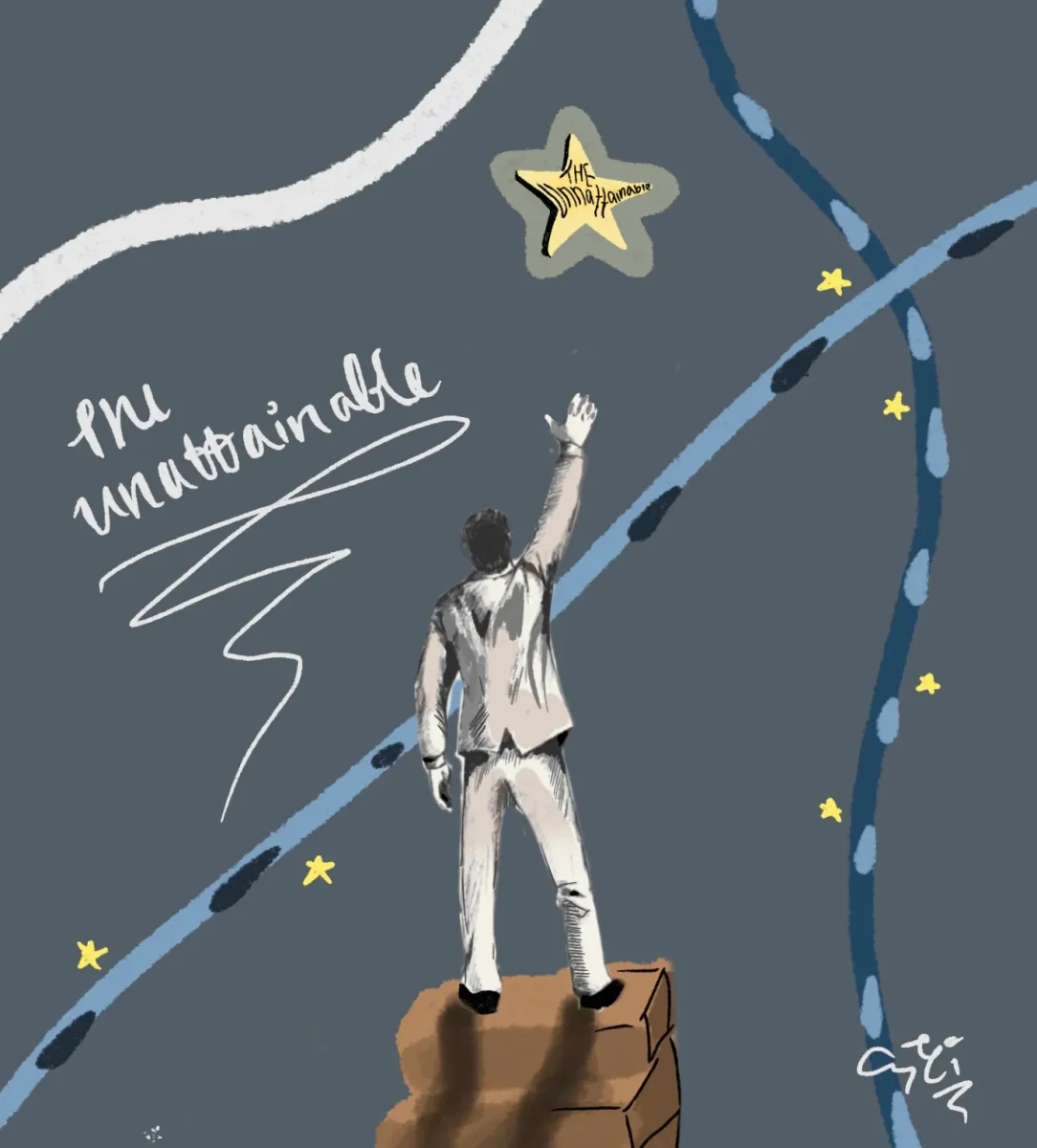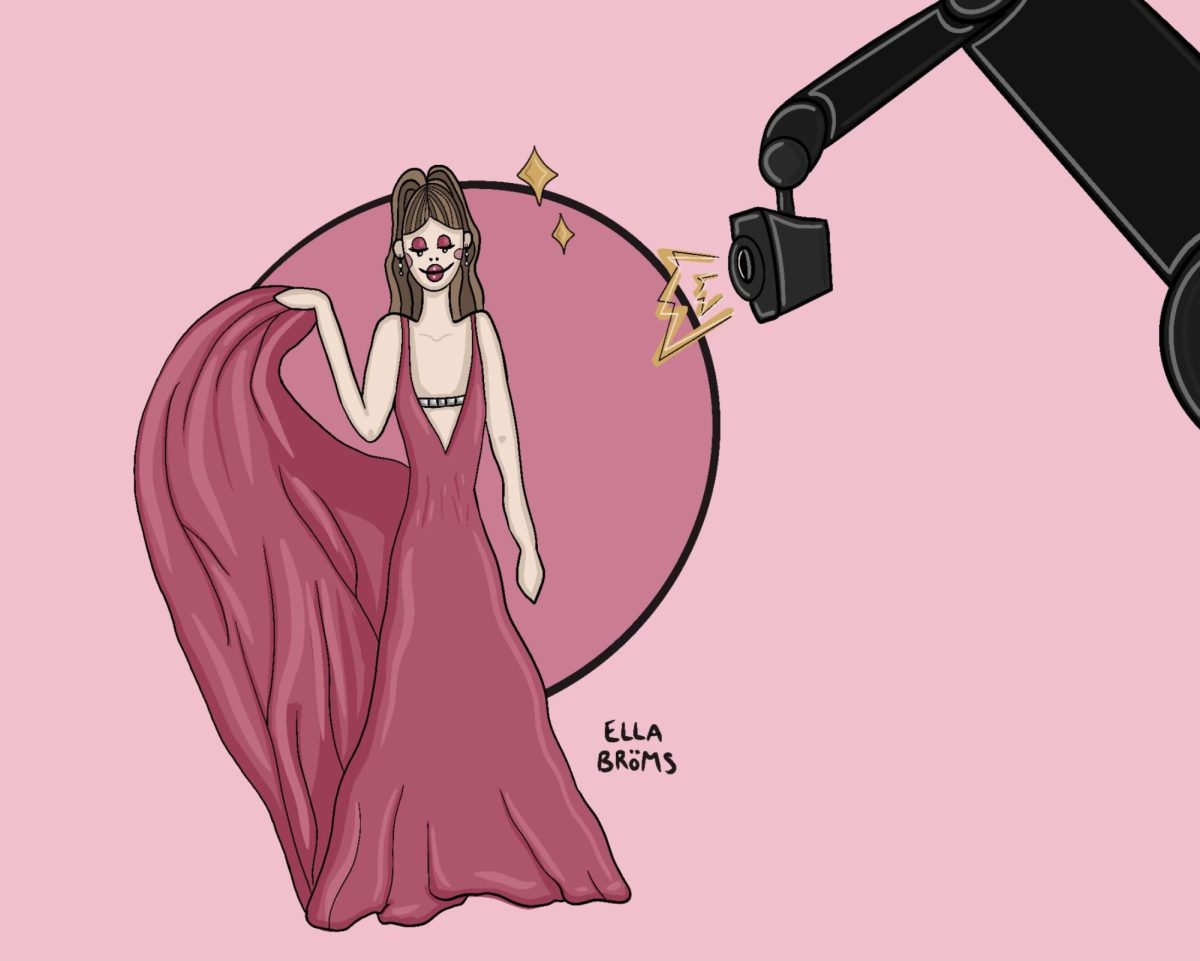There was no doubt in my mind that “The Fantastic Four: First Steps” would be a fun-filled family romp. A harmless Atomic Age-themed drama that put “Marvel’s first family” front and center, without breaking any major boundaries that’d put longtime comic fans in a spiral. What’s not to like about that?
Even if the film so highly valued style over substance–from the characters of Mister Fantastic, aka Reed Richards, to The Thing, aka Ben Grimm–I was certain it’d be a good time. While the narrative was surprisingly competent, I was more or less correct.
When the credits rolled on “First Steps,” I immediately turned to my brother and told him that it contained the cutest opening to a movie that I had ever seen in my life. Indeed, the film opens with a somewhat dawdling TV segment covering the superpowered team’s origins and current place in the world. A montage shows Richards and the others saving sinking cruise liners and little girls from burning ladder rungs. Flying cop cars, automated by the Four themselves, scour the city for any and all crime in a display that reeks of pure ’60s escapism.
Evidently, I didn’t expect this movie to be some untouchable piece of high art, on par with Stanley Kubrick’s “2001” or Andrei Tarkovsky’s “Solaris.” However, from the moment that big blue “4” first graced my theater’s screen, to the moment it shuttered back to the projector from whence it came, I felt only the utmost content. This superhero flick with a budget that could repair a small country or two … it satisfied me.
The thought surged throughout my brain: “First Steps” was a return to form. After COVID permanently turned off legions of people from movie theaters, and after the multitude of failures Marvel had suffered trying to branch out into TV, this was it. Fun, action-packed, and absurdly charming, I knew it in my heart and in my soul that the Marvel Cinematic Universe was back.
My heart needs to be checked out.
The moment I came home from seeing the Four face off against Galactus and his deadly multiversal herald, I raced to my bedroom and excitedly searched up the film. However, I was greeted only to headline after headline proclaiming that the emerging threat of “superhero fatigue” had struck again.
It seemed that, among all the neutral-positive to absolutely buzzing press surrounding Marvel’s first family, audiences did not seem as enthusiastic past the film’s first couple of days in the world. On Aug. 1, “First Steps” grossed a mere $11.7 million domestically, a sharp 80% drop from its debut on the big screen—less than even “Ant-Man” earned at the peak of the MCU’s popularity a neat and tidy 10 years ago.
Now, internationally speaking, “First Steps” is pegging up to a hefty $500 million after barely four weeks in theaters. However, I am of the opinion that overseas sales should not be carrying a movie written, directed, and produced entirely within the confines of the United States, featuring a wholly American main cast and set in a retrofuturistic New York City.
That finally begs the question: why aren’t some of Marvel’s most historically significant, well-beloved heroes making the rounds in Los Angeles, Chicago, Miami and so on?
“Superhero fatigue” is a term seemingly exclusive to the 2020s, seemingly used to refer to anything Marvel has produced after “Avengers: Endgame” capped off the 2010s. It remains a growing concern whenever the former cinematic hegemon churns out anything that doesn’t pander to at least one demographic’s nostalgia goggles. You may be reminded of “Spider-Man: No Way Home” or last year’s “Deadpool & Wolverine,” both of which brought back alternate versions of classic Marvel characters from shared universes long past.
In other words, many have begun to worry that regardless of how entertaining, beautiful or emotionally poignant a Marvel movie may be, general audiences will reject it on the basis that the spell has worn off. Sometimes I see people look back on “Avengers: Endgame” and “Ant Man” years after the fact, and simply remark that they aren’t as well-shot as they could’ve been. I’ve seen people gawk at the endless plot holes, the juggling of hundreds of characters at once, and, may I reiterate, just how terrible the cinematography of these films could often be.
The more I thought about “First Steps” and all of its many contents, the more cracks I began to see under its shiny, retrofuturistic surface. While the movie was much longer than the average Marvel blockbuster, it sure didn’t feel like it; watching “First Steps” felt like trying to navigate a hill with a dozen 180° curves back-to-back. It was all turns, no straightaways, and while I certainly wasn’t complaining, with this added context it almost feels like the film was trying to lull me into a trance.
Some say Marvel’s in a rebuilding phase of sorts, but the more I thought about this movie, the more I got the sense executives were trying desperately to capture so many thousands of ever-shortening attention spans across the country. “First Steps” acted like it couldn’t risk being forgotten—yet it was almost as if it knew it would be anyway.
Maybe that’s the real sign that any golden age is over.









